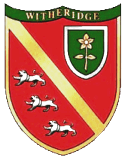

|
Hugh Moore was baptized in Witheridge on 5 November 1717. He was the youngest son of Ananias and Susanna Moore. Ananias was a blacksmith; both this name and trade ran like a thread through the eighteenth century, although Hugh himself became a cordwainer or bootmaker. Hugh's brother Ananias was indeed a blacksmith; he died in 1789, leaving 'all that dwelling house and appurtenances in Witheridge' to Hugh. In turn, Hugh left it to his own son, Thomas. Hugh's other son Ananias was aged 50 when his father died; he received the large sum of £30, but had little time to enjoy it, for within three months of his father's passing he to was dead. Hugh must have been a successful man, for in addition to Ananias's £30, he left £10 each to his grandsons, Thomas, Hugh, Robert and Ananias. Thomas also got the anvil and coal trough as well as the residue of the estate as he carried on the family's smithy tradition. However, he was obliged to meet all claims and was the sole executor. Meanwhile Robert received 'the large chest that stands in my room'. Hugh got 'a silver table spoon with a yellow head', and Ananias 'my silver cup'. Boys were much more favoured than girls, for Hugh's granddaughter Mary received only two guineas, while his other two granddaughters (not even named) received one-and-a half guineas each. Hugh Moore's signature at the bottom right of the will, next to the seal, was shaky, but shakiness could be from a lack of patience as well as ill health. The will was signed on 5 November 1794, and Hugh lived until May 1797, only 6 months short of his 80th birthday. Previous Last Edited 03/07/2006 Copyright © 2000-2006 Witheridge Unless otherwise indicated on the page in question, the photographic images reproduced on this site belong to the Witheridge Archives, and, as such may not be reproduced for commercial purposes without written permission. However, you are welcome to use any of the photographs belonging to the archive for personal and/or non-commercial use. Any material shown as not being owned by the archive may not be reproduced in any form without first receiving written permission from the owner of the material in question. |

